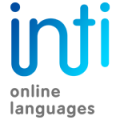High intermediate
- Detailed content
Noun Phrases
- You will learn how to add extra information to nouns with explanations and prepositional phrases.
- You will learn how nouns and verbs match in a sentence.
Adjectives
- You will be able to turn adjectives into nouns using “el.”
- You will learn how to add extra details to adjectives.
- You will learn how to modify adjectives with other words.
Articles
- You will be able to use “the” and “a/an” correctly.
- You will learn when articles change depending on other words in the sentence.
Pronouns
- You will learn when to include or skip subject pronouns.
- You will understand how to use object pronouns and when they appear twice.
- You will learn where to place pronouns with infinitives and gerunds.
- You will review indirect object pronouns with verbs.
Possessives
- You will learn the difference between stressed and unstressed forms.
- You will learn how to combine possessives with other words.
Quantifiers
- You will learn how to talk about amounts, like “everyone,” “most,” or “some.”
Prepositions
- You will review prepositions like “a” with direct objects, and “por” vs. “para.”
Adverbs and Adverbial Phrases
- You will be able to talk about past and future time.
- You will learn connectors like “suddenly” or “then.”
- You will learn words like “already/not yet,” and “probably, surely, maybe.”
Interjections
- You will learn how to react with words like “vaya!” or “ojalá!”
Verbs and Actions
- You will review the present, past, and future tenses, including irregular forms.
- You will review differences between past tenses.
- You will be able to use the subjunctive (present and imperfect).
- You will review the conditional and imperative forms.
Ser and Estar
- You will review when to use ser and estar and how the meaning can change.
Future Forms
- You will review the simple future and compound future forms.
Verbal Phrases
- You will review combinations of verbs and modal expressions like “we should” or “one must.”
Impersonal Forms
- You will learn how to use infinitives as subjects or objects.
- You will learn how gerunds show actions or describe circumstances.
- You will learn how participles can describe results.
Sentence Building
- You will learn to express doubt, hope, or wishes.
- You will learn to link ideas with words like “however” or “so.”
Substantive Clauses
- You will be able to use infinitives to express difficulty, fear, or logic.
- You will learn to use infinitives with verbs like “want,” “expect,” “prohibit.”
- You will learn how to choose between subjunctive and indicative.
- You will be able to use indirect speech structures.
Relative Clauses
- You will learn how to use relative clauses with prepositions.
- You will learn the differences between “que” and “quien.”
- You will learn when to use subjunctive or indicative in relative clauses.
Subordinate Adverbial Clauses
- Time clauses: You will be able to say when something happens (before, after, until, while).
- Place clauses: You will be able to describe where something happens.
- How clauses: You will be able to describe how something happens.
- Cause clauses: You will be able to explain reasons.
- Consequence clauses: You will learn to show results.
- Concessive clauses: You will learn to use phrases like “even though.”
- Purpose clauses: You will learn how to express intentions and purposes.
- Conditional clauses: You will learn “if…then…” in different situations.
Giving and Asking for Information
- You will learn to leave and receive messages.
- You will learn to tell stories, anecdotes, and past experiences.
Expressing Opinions and Knowledge
- You will be able to talk about hypothetical or imaginary situations. You will learn to express consequences and conditions.
Expressing Likes, Desires, and Feelings
- You will learn to express desires and wishes.
- You will learn to express emotions like hope, surprise, anger, fear, embarrassment, or admiration.
75,00€
A high-intermediate learner can participate in longer, more detailed conversations and understand the main ideas of complex texts. They can narrate events in different tenses and communicate their thoughts with reasonable clarity despite occasional errors.
- Level: High Intermediate.
- Registration: valid for 1 year.
- Platform materials: included.
- Video explanations: included.
- Course certificate: included.
- Chat with a Spanish teacher: included.


